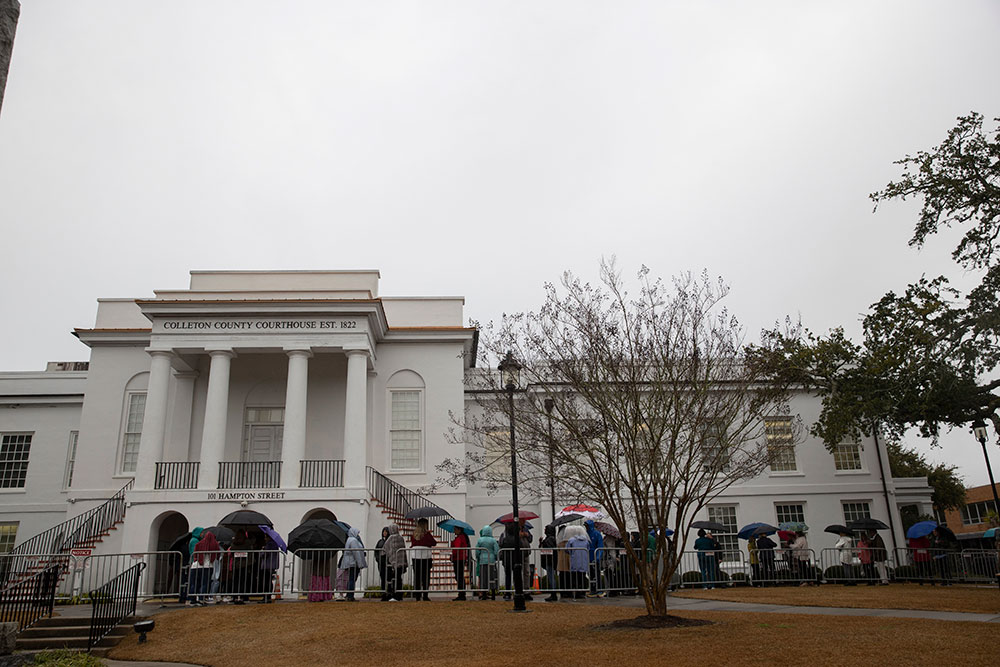WALTERBORO
For six weeks, a Colleton County jury regarded Alex Murdaugh as though he were an innocent man.
Alex had the right to that presumption, of course, and as such his status as an inmate was kept from them.
Every morning and evening, when escorting Alex into and out of the courthouse, guards were careful to cover Alex’s handcuffs with his sports coat to keep the reality of his jailhouse residency hidden from any jurors who might pass by.
This was important.
Had a juror caught sight of those cuffs, it could have been grounds for a mistrial.
On Feb. 8, when a prisoner of Ridgeland Correctional Institution — just 37 miles away from the Colleton County Courthouse — allegedly called in a bomb threat during Alex’s trial, Judge Clifton Newman was careful to evacuate the jurors and Alex separately.
Afterward, a friend commented to me, “It’s a credit to the judge that he had the presence of mind to sequester and protect the jury in that moment.”
Shortly after the unfounded threat, a story began circulating online about a similar incident that had occurred in 2017 during a murder trial in Hampton County, Va.
That jury had seen the defendant in handcuffs during the evacuation and that was the end of that trial.
The coincidence of geographical name had people confused and wondering if the bomb threat at Alex’s trial was somehow connected to Alex or his family.
In other words, was this something that had been done before and was it being done now to affect the outcome of the trial?
According to a news release from the Colleton County Sheriff’s Office two weeks later, there was no evidence “at this time” of any “direct connection” between the man alleged to have made the threat and Alex Murdaugh.
Nevertheless, it was a close call that would have only served to benefit Alex had the judge let down his guard.
It was a reminder of the insidious battle the prosecution had taken on.
For weeks there were a series of moments that made me realize just how rocky and undriven the road ahead was — how uncertain it was that we’d make it to the end simply because of who Alex Murdaugh was.
The Murdaugh family — with their deep roots in the legal community, in law enforcement and in the justice system itself, along with their apparent and ongoing support of Alex — were a formidable foe.
The family had invested considerable resources in building Alex’s defense.
And the state had invested considerable resources in tearing it down.
As three weeks turned to six, there were times when I worried it might have been too much — the equivalent of calling in a platoon of Marines to take down a single wolf who was being protected by tireless rattlesnakes.
Is one wolf worthy of all this drama?
Holding a man accountable for the murders of his wife and son is inherently worth it, of course. But was this level of effort sustainable? And going forward, would the state invest Murdaugh-level resources into prosecuting non-Murdaugh defendants who are charged with harming their regular old families?
That wouldn’t be practical, right? So where did this put us? Was the system the way it was because it had to be? Does this system where the rich and powerful can purchase their way out of accountability exist simply because of expediency?
Then came the guilty verdict.
And Alex Murdaugh the murderer was led past the jury in cuffs.
The next day he returned in a jail-issued jumpsuit, wearing jail-issued slides. He stood shackled in front of the world as he received two life sentences for what he did to Maggie and Paul.
When his sentencing was done, he shuffled out of the courtroom flanked by guards.
He looked like any other man paying for his crimes.
Not better. Not worse.
But the same.
It was this designation he’d been fighting all along.
And with that the scales of justice in South Carolina have been recalibrated.
It’s up to the rest of us to keep them that way.



